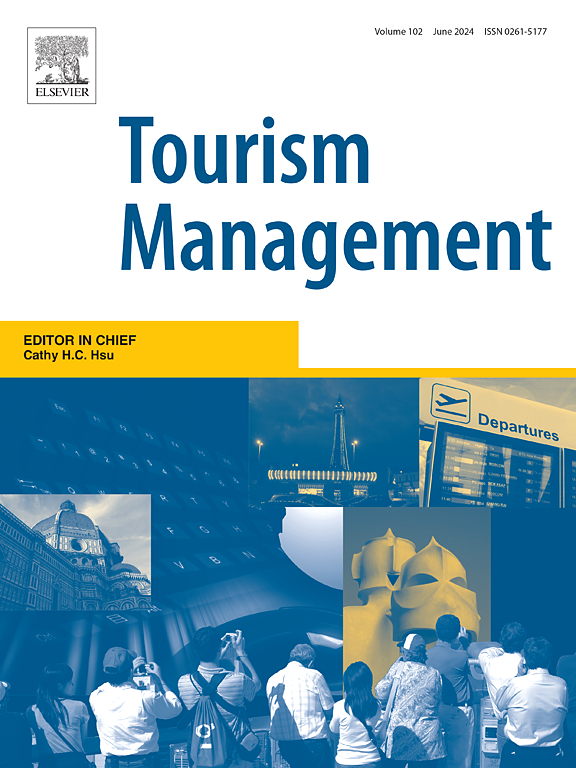过度服务适得其反:机器人高度关注对游客不连续使用意图的影响
IF 12.4
1区 管理学
Q1 ENVIRONMENTAL STUDIES
引用次数: 0
摘要
人工智能机器人可以通过主动参与来满足消费者的功能和情感服务需求。然而,过度关注可能会产生意想不到的负面结果。利用资源保护理论,本研究采用四项研究和一篇论文的荟萃分析来调查高度(相对于中度)细心的机器人服务如何影响游客停止使用的意愿。结果表明,高度专注的机器人服务增加了非连续性的使用意图,这种影响通过感知到的对自由的威胁和情感枯竭而依次展开。此外,信息敏感性和技术焦虑调节了机器人注意力与间断使用意图之间的关系。这些发现为旅游业从业者有效地部署机器人服务以促进消费者对技术的接受提供了战略见解。本文章由计算机程序翻译,如有差异,请以英文原文为准。
Overservice backfires: The impact of high robot attentiveness on tourists' discontinuous usage intentions
AI-powered robots can meet both functional and emotional consumer service needs through proactive engagement. Yet, excessive attentiveness may produce unintended negative outcomes. Drawing on conservation of resources theory, this research employs four studies and a single-paper meta-analysis to investigate how highly (vs. moderately) attentive robotic service influences tourists' intentions to discontinue use. Results show that highly attentive robotic service increases discontinuous usage intentions, and this effect unfolds sequentially through perceived threat to freedom and emotional exhaustion. Furthermore, information sensitivity and technology anxiety moderate the relationship between robotic attentiveness and discontinuous usage intentions. These findings offer strategic insights for tourism practitioners on deploying robotic services effectively to foster consumer acceptance of technology.
求助全文
通过发布文献求助,成功后即可免费获取论文全文。
去求助
来源期刊

Tourism Management
Multiple-
CiteScore
24.10
自引率
7.90%
发文量
190
审稿时长
45 days
期刊介绍:
Tourism Management, the preeminent scholarly journal, concentrates on the comprehensive management aspects, encompassing planning and policy, within the realm of travel and tourism. Adopting an interdisciplinary perspective, the journal delves into international, national, and regional tourism, addressing various management challenges. Its content mirrors this integrative approach, featuring primary research articles, progress in tourism research, case studies, research notes, discussions on current issues, and book reviews. Emphasizing scholarly rigor, all published papers are expected to contribute to theoretical and/or methodological advancements while offering specific insights relevant to tourism management and policy.
 求助内容:
求助内容: 应助结果提醒方式:
应助结果提醒方式:


